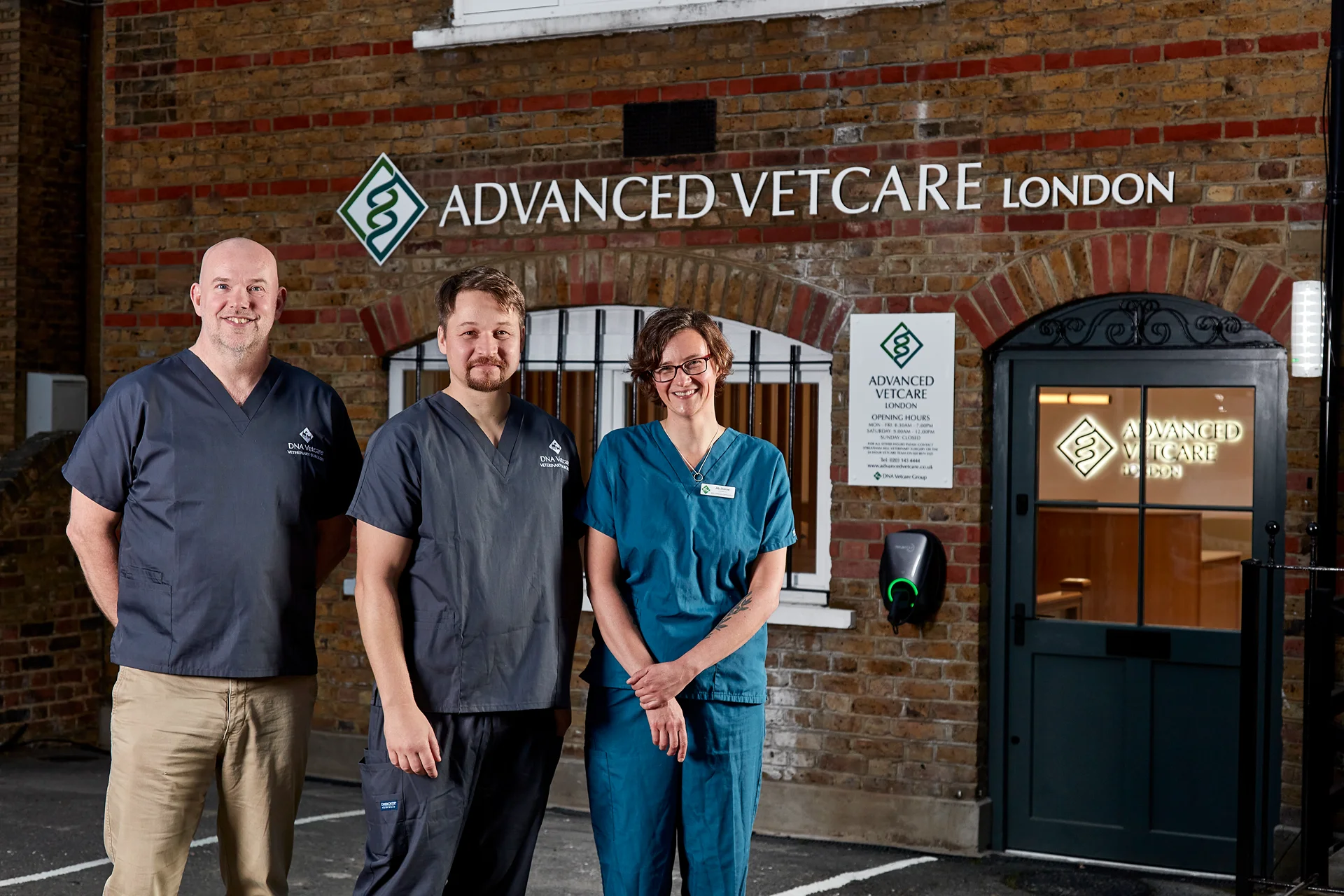Pet keyhole surgery
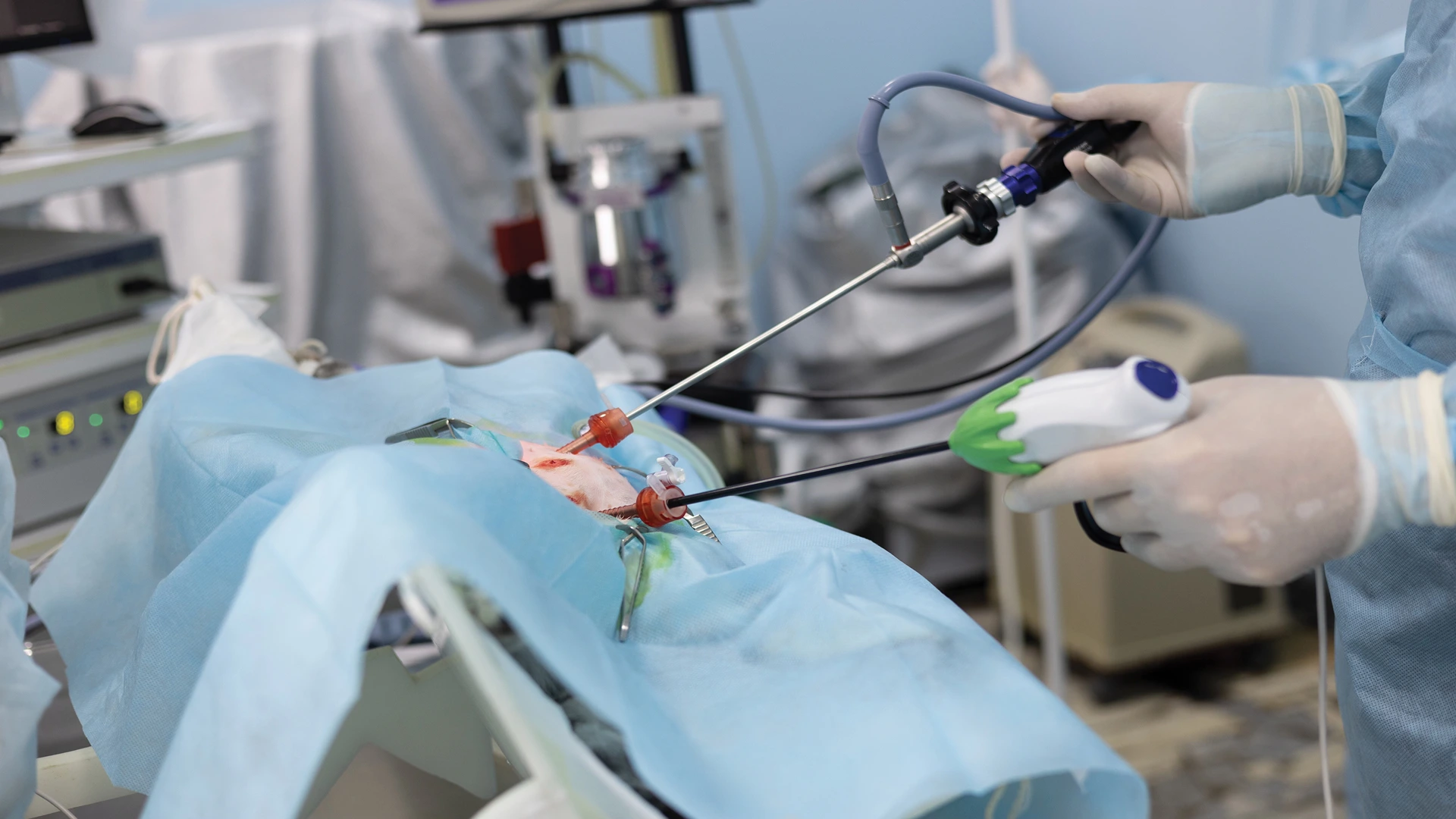
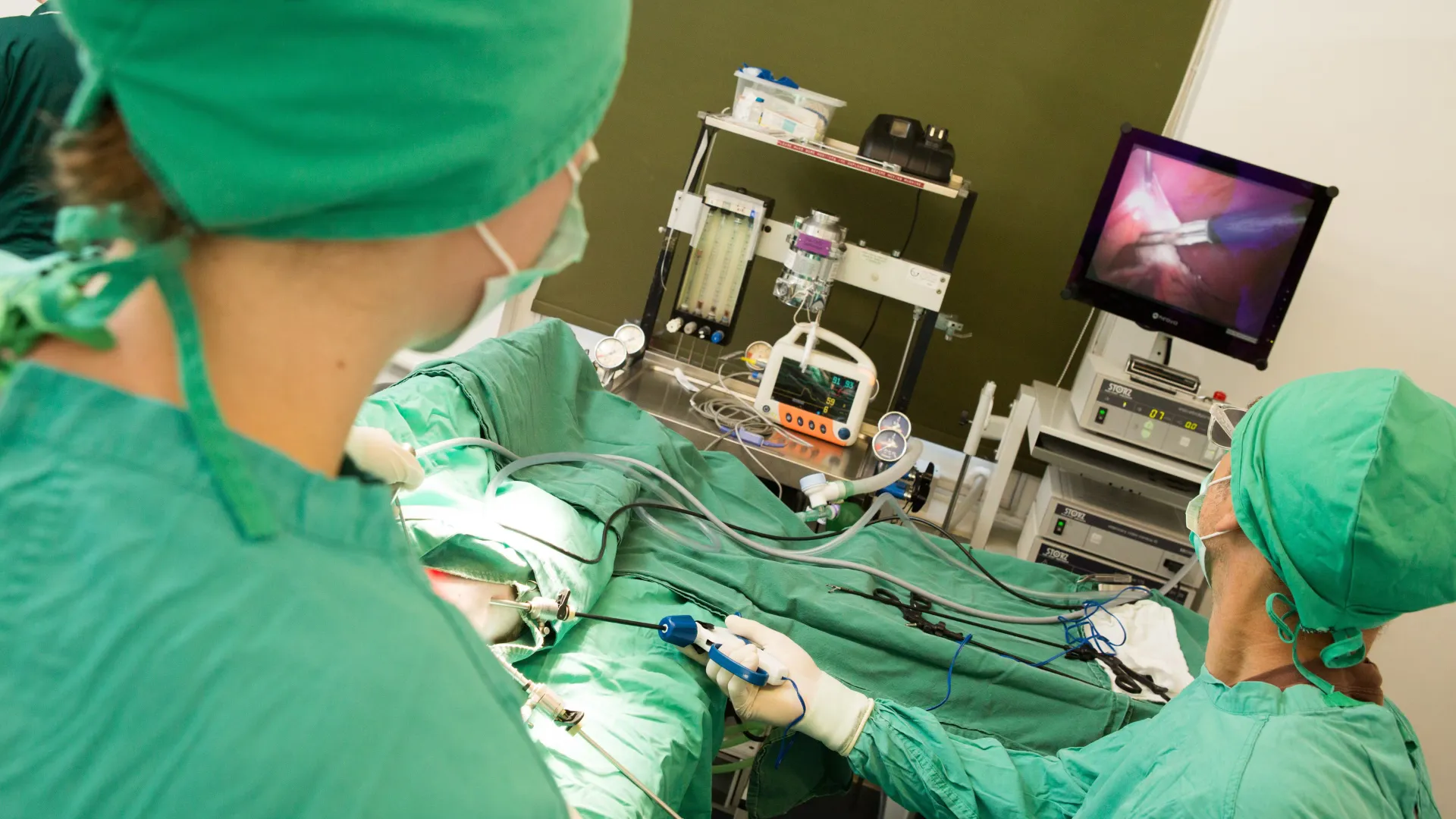
Leading surgical expertise combined with the latest techniques
We offer pet keyhole surgery, also known as laparoscopy surgery, for a wide range of procedures. Using small incisions and high-definition imaging, this technique allows us to perform complex procedures with reduced pain, faster recovery, and minimal scarring.
Whether you’re seeking dog keyhole surgery for routine neutering or a diagnostic abdominal procedure, your pet is in the safest of hands.
Leading surgical expertise combined with the latest techniques
We offer pet keyhole surgery, also known as laparoscopy surgery, for a wide range of procedures. Using small incisions and high-definition imaging, this technique allows us to perform complex procedures with reduced pain, faster recovery, and minimal scarring.
Whether you’re seeking dog keyhole surgery for routine neutering or a diagnostic abdominal procedure, your pet is in the safest of hands.

What is keyhole surgery for pets?
If you're wondering ‘what is keyhole surgery?’, keyhole surgery (or laparoscopic surgery) is a minimally invasive surgical technique that uses tiny incisions, a small camera (laparoscope), and specialised instruments to access internal organs.
It is a highly advanced alternative to traditional open surgery and is suitable for a variety of soft tissue procedures in both dogs and cats.
Because of the smaller incisions, this technique offers less postoperative discomfort, faster healing times, and reduced risk of complications compared to conventional open surgery.
What are the benefits of pet keyhole surgery?
For many pet owners, the benefits of laparoscopy surgery make it the preferred option for both elective and diagnostic procedures. These benefits include:
- Smaller incisions
- Reduced postoperative pain
- Quicker recovery and return to normal activity
- Lower risk of infection
- Minimal scarring
- Enhanced visualisation of internal structures
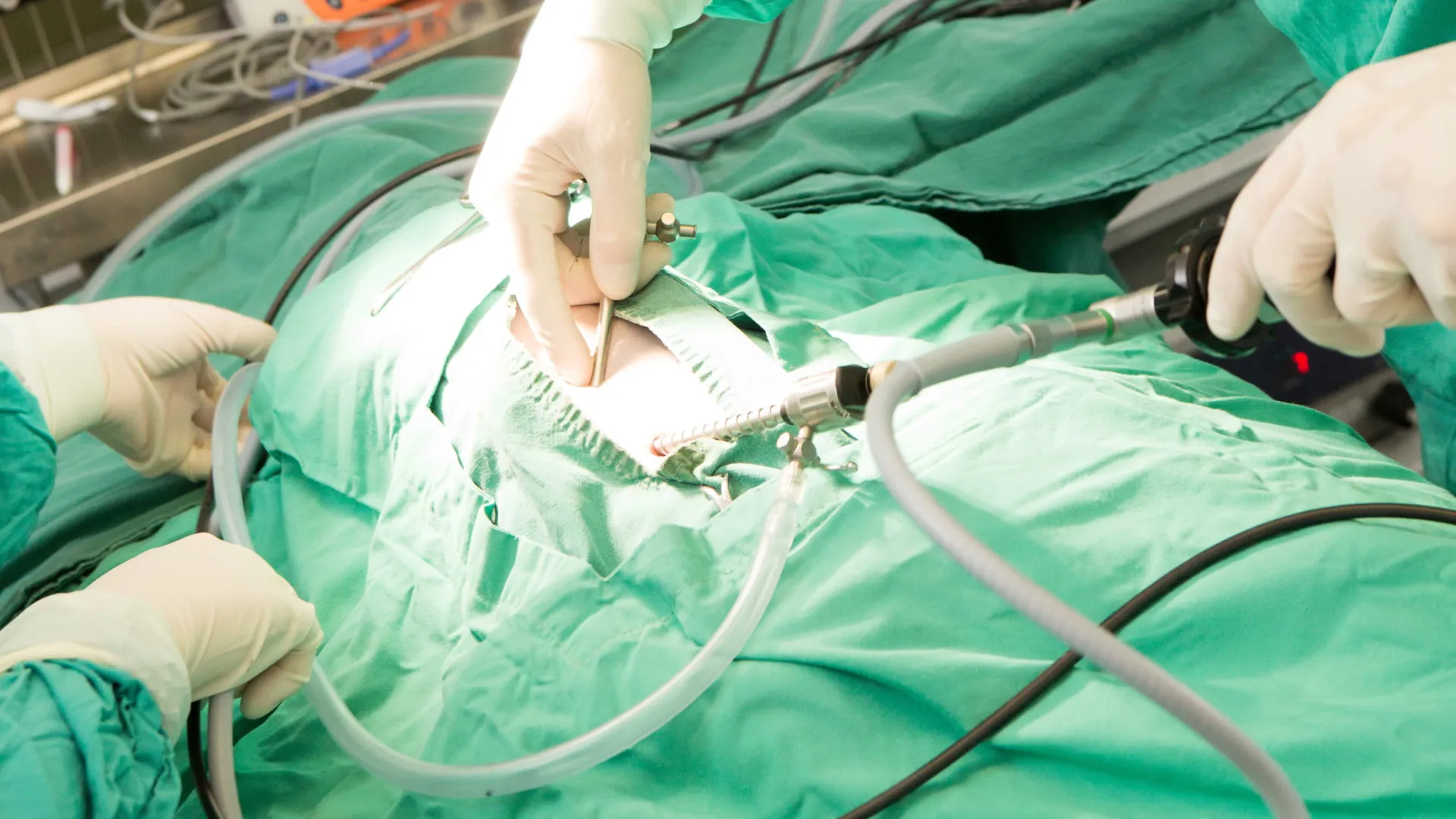
Our keyhole surgery services
Our team of experienced veterinary surgeons uses the latest techniques to perform a wide range of laparoscopy surgery procedures. Each patient receives a personalised treatment plan and expert care throughout.
Female dog spaying - ovariectomy
We offer laparoscopic ovariectomy (removal of the ovaries) for routine spaying in female dogs. Compared to traditional spaying, this approach significantly reduces post-operative pain, inflammation, and recovery time.
Male dog neutering - testicle removal
In select cases, dog keyhole surgery can be used for intra-abdominal testicle removal in male dogs with retained testicles (cryptorchidism), offering precise and less invasive treatment.
Gastropexy
We recommend laparoscopic gastropexy for at-risk breeds prone to gastric torsion (bloat). This procedure permanently tacks the stomach to the abdominal wall, significantly reducing the risk of life-threatening GDV.
Abdominal and chest exploratory surgery
Laparoscopy allows us to assess internal organs with clarity and precision, making it ideal for diagnosing unexplained symptoms such as chronic vomiting or weight loss.
Biopsies
We can obtain accurate tissue samples from the liver, kidneys, pancreas, or intestines using minimally invasive techniques, often avoiding the need for open abdominal surgery.
Contact our team for friendly help and advice
Contact usAre there any risks with pet keyhole surgery?
As with any surgical procedure, there are risks, though they are generally lower with laparoscopy. Complications such as bleeding, infection, or reaction to anaesthesia are very rare but can occur.
Our experienced surgical and anaesthesia teams follow strict protocols and use advanced monitoring to minimise risk and ensure your pet’s safety at every stage.
Frequently asked questions
Keyhole surgery is widely regarded as a safe and effective option. At Advanced Vetcare London, our surgeons use state-of-the-art laparoscopic systems and modern anaesthesia protocols to ensure your pet’s comfort and safety. Many pets experience a quicker, smoother recovery compared to traditional surgery.
Common laparoscopic procedures include spays, abdominal exploratory work, organ biopsies, preventative gastropexy, and removal of certain internal masses. Our advanced equipment allows us to perform these procedures with exceptional precision and minimal invasiveness.
Keyhole surgery uses tiny incisions and a camera to perform procedures with minimal disruption to surrounding tissues. Compared to traditional open surgery, it typically results in less pain, reduced bleeding, and faster recovery for your pet.
Refer a case or learn more
Refer a case
Fill out our referral form and a member of our team will be in touch
Refer a case


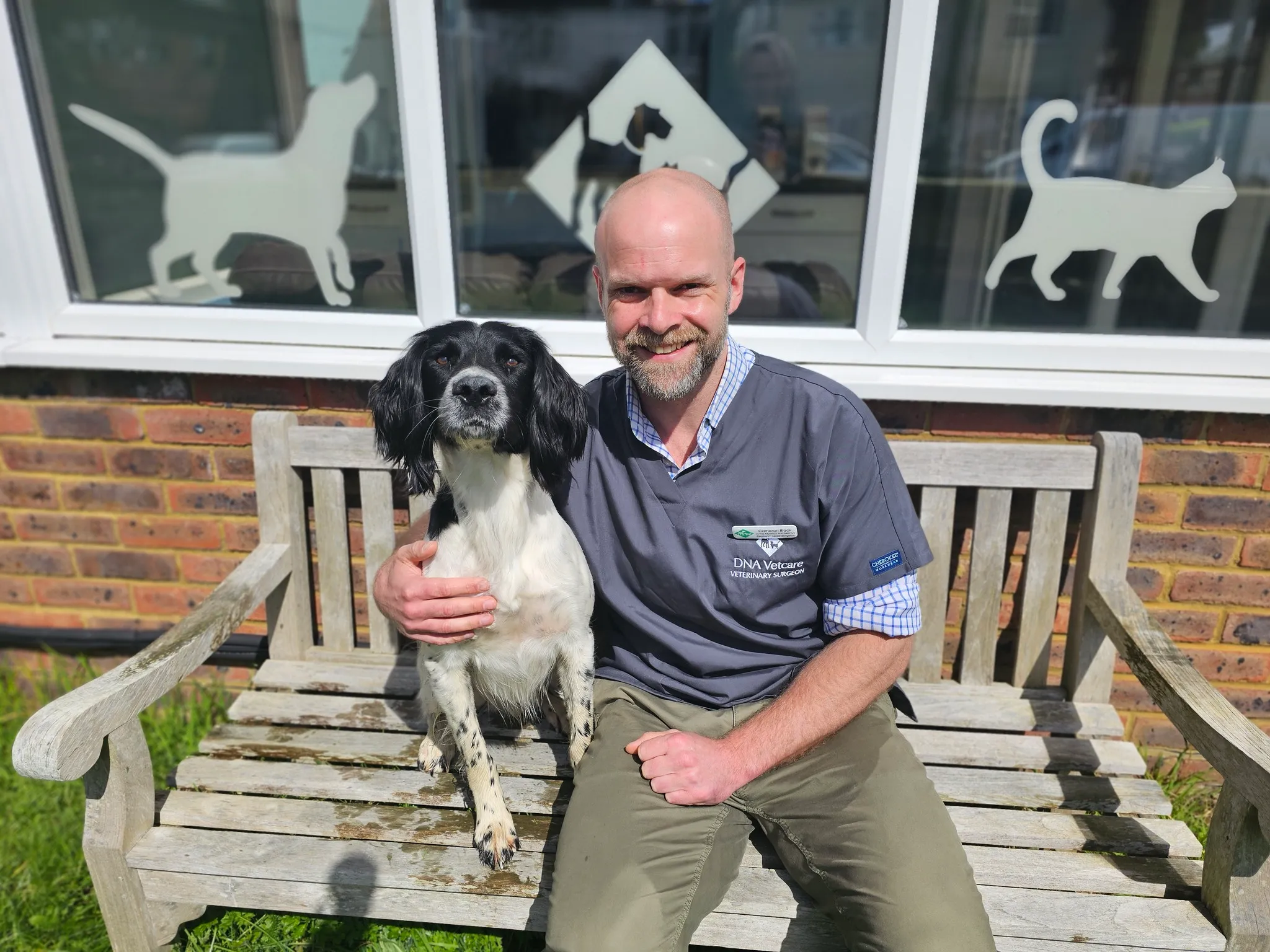
.webp)

